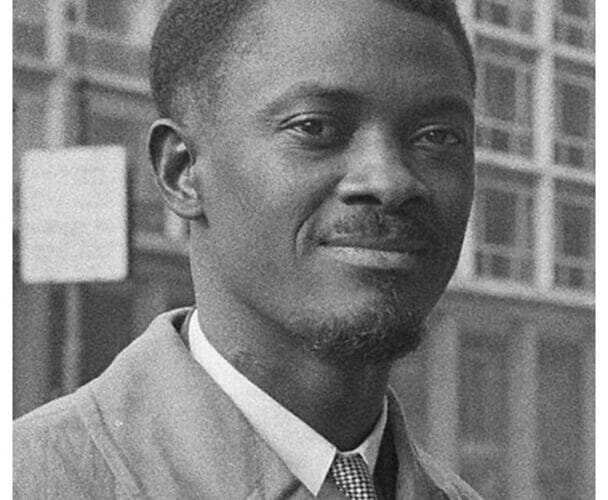Patrice Lumumba
Patrice Lumumba remains a significant figure in the annals of African history, particularly as a symbol of the struggle for independence and sovereignty. Born on July 2, 1925, in Onalua, a small village in the Belgian Congo, Lumumba’s early life was marked by modest beginnings, yet his aspirations propelled him into the political limelight. He became the first Prime Minister of the Democratic Republic of the Congo after the country gained independence from Belgium on June 30, 1960. Lumumba quickly emerged as a potent voice for national identity and Pan-Africanism, advocating for the unity and self-determination of African nations. This vision was deeply rooted in his belief that colonial rule had stifled progress and development across the continent.
The significance of Lumumba in the broader Pan-African movement cannot be overstated. His fervent emphasis on the necessity of unity among African countries and peoples resonated across the continent, capturing the attention of various leaders and intellectuals who shared his vision. Unfortunately, this vision came with immense challenges, as Lumumba faced not only internal opposition but also external pressures from Cold War superpowers. His government was short-lived, lasting less than a year, as various factions within the Congo, alongside foreign intervention, sought to undermine his leadership.
While his tenure was tumultuous, Lumumba’s legacy continues to inspire future generations. His commitment to social justice, anti-imperialism, and regional cooperation has cemented his position as an enduring icon of African independence. The themes of national unity and self-determination remain relevant today, reflecting Lumumba’s profound influence on contemporary political landscapes across Africa. In understanding Lumumba’s life and legacy, one can appreciate both the triumphs and tribulations that characterized the post-colonial struggle for African autonomy and identity.
Early Life and Background
Patrice Lumumba was born on July 2, 1925, in the small village of Onalua, situated in the Belgian Congo, which later became known as the Democratic Republic of the Congo. As the son of a farmer, he experienced firsthand the struggles of rural life under colonial rule. Lumumba’s upbringing took place during a period marked by profound socio-political challenges; the country was under the yoke of Belgian colonialism, which significantly impacted his early views on governance and national identity.
During his formative years, Lumumba attended local schools where he began to develop a keen interest in politics and the injustices prevalent in his society. He was exposed to various influences that shaped his understanding of colonialism and the importance of independence. The socio-political context of the Congo at the time played a crucial role in molding his views. The exploitation and marginalization experienced by his communities fueled his desire to seek social justice and political power.
After completing primary education, Lumumba pursued further studies in a post-primary institution in the capital, Leopoldville (now Kinshasa). His experiences in the urban environment, coupled with exposure to the burgeoning nationalist movements across Africa, further solidified his resolve to strive for the emancipation of his people. Lumumba’s engagement with various political groups and his participation in anti-colonial organizations laid the groundwork for his future role as a significant political figure.
His ability to articulate the aspirations of the Congolese people and to challenge colonial oppression resonated deeply within his community. Through his early experiences and education, Lumumba emerged with a strong sense of national identity and a commitment to unifying his nation. This foundational period set the stage for his later emergence as one of Africa’s most prominent leaders and a symbol of resistance against colonialism in the mid-20th century.
Involvement in Politics
Patrice Lumumba’s journey into politics began against the backdrop of colonial rule in the Belgian Congo, where he worked as a postal clerk. His experience in the postal service acquainted him with the inefficiencies of the colonial administration and ignited a fervent desire for change. Lumumba soon recognized the urgent need for organized resistance against Belgian oppression, which catalyzed his involvement in the political landscape of Congo.
In 1958, Lumumba played a pivotal role in founding the Congolese National Movement (Mouvement National Congolais, MNC), a political party that became a significant vehicle for advocating Congolese independence. His visionary leadership attracted numerous supporters who shared a common aspiration for liberation from colonial shackles. Lumumba’s charisma and oratory skills helped him to articulate a clear vision of unity, encouraging various ethnic groups within the Congo to rally together under a single banner. This was critical in a country where tribal divisions were often exploited by colonial powers.
As a leader of the MNC, Lumumba sought to empower the Congolese people by advocating for political representation, social justice, and economic development. His activism embodied the broader Pan-African movement, calling for solidarity among African nations in their quest for self-determination. Lumumba gained national prominence when he participated in the Congolese Round Table Conference in 1960, where negotiations for independence from Belgium were conducted. He eloquently denounced colonialism and rallied national pride, capturing the hearts and minds of many Congolese. This advocacy culminated in Congo’s independence on June 30, 1960, and Lumumba’s subsequent appointment as the first Prime Minister, marking a significant milestone in the country’s quest for freedom and progress.
Congo’s Path to Independence
The path to independence for the Democratic Republic of the Congo, formerly known as the Belgian Congo, was marked by a series of pivotal events that unfolded in the years leading up to June 30, 1960. The post-World War II era saw a growing wave of decolonization across Africa, fueled by nationalist movements and calls for self-determination. The political landscape in the Congo was significantly influenced by internal and external pressures, setting the stage for a transformative moment in the nation’s history.
Key figures emerged during this critical period, notably Patrice Lumumba, who would later become the nation’s first Prime Minister. Lumumba founded the Mouvement National Congolais (MNC), which advocated for independence and was instrumental in mobilizing the Congolese population against Belgian colonial rule. His vision sought not only political autonomy but also social and economic reforms, promoting a unified Congo that embraced its diverse ethnic backgrounds.
In January 1960, Belgian authorities announced a series of reforms, culminating in the promise of independence by mid-year. However, these reforms were perceived as inadequate and fractious by many Congolese leaders. The urgent push for independence led to an intense political climate, characterized by public protests and organized strikes. The desire for self-governance was encapsulated in the hopes of millions of Congolese who envisioned a brighter future free from colonial oversight.
As the date for independence approached, the challenges facing the new government became apparent. The nation was plagued by tribal rivalries, a lack of infrastructure, and a scarcity of trained personnel to lead in the post-colonial era. Despite these challenges, Lumumba’s leadership inspired hope among the populace as he inherited a mantle of responsibility to steer the nation toward stability and progress. The optimism that accompanied independence served as a clarion call for a newfound national identity and unity in the Congolese struggle against historical injustices.
Prime Minister of Congo
Patrice Lumumba was appointed as the first Prime Minister of the Democratic Republic of the Congo following its independence from Belgium on June 30, 1960. His tenure was marked by a visionary approach aimed at uniting a fragmented nation and steering it toward the path of self-determination and development. Lumumba sought to establish a government that reflected the diverse ethnic groups and interests within the Congo, advocating for a policy of inclusivity and equality. His vision was largely driven by a commitment to eradicating colonial legacies and fostering national pride among the Congolese people.
During his administration, Lumumba faced significant challenges as various internal factions, including tribal leaders and military officials, vied for power and autonomy. The complexity of the political landscape was exacerbated by Belgium’s reluctance to fully relinquish control, leading to a situation where Lumumba had to navigate both internal dissent and external pressures from foreign powers. His attempts to bring cohesion and stability to the government were often undermined by the strategic interests of countries like the United States and the Soviet Union, who were keen on exerting influence over the newly independent nation during the Cold War.
Despite the hurdles, Lumumba’s policies focused on social and economic reform, including the nationalization of assets held by foreign companies and investments in education and health care. His government aimed to ensure that the wealth of the country benefitted the Congolese people rather than foreign stakeholders. However, these initiatives were met with resistance from both domestic and international actors, leading to heightened tensions and eventual turmoil. Lumumba’s vision for a sovereign and independent Congo was compelling, yet the realities of his administration illustrated the complexities of leading a nation emerging from colonial rule amidst external and internal turmoil. Ultimately, these dynamics significantly shaped the legacy of Patrice Lumumba as a leader committed to the empowerment of his people.
Political Turmoil and Assassination
The political landscape in the Congo following its independence from Belgium in June 1960 was fraught with instability and conflict. Patrice Lumumba, the nation’s first prime minister, emerged as a prominent leader advocating for national unity and socio-economic development amidst rampant tribal tensions and regional secessionist movements. However, his vision for a unified Congo faced significant obstacles, chiefly from foreign powers and domestic adversaries who opposed his progressive policies.
Shortly after Lumumba took office, political rivalries intensified within the newly formed government. The most notable conflict arose with the central government in Kinshasa and the secessionist movement in Katanga, led by Moise Tshombe. The central tensions escalated when Lumumba sought support from the Soviet Union to quell internal unrest, which alarmed Western powers, notably the United States and Belgium. This external interference significantly contributed to the political crisis that enveloped the Congo, as Lumumba’s alignment with communism was seen as a direct threat to Western interests in Africa during the Cold War.
In September 1960, Lumumba was dismissed from his post by President Joseph Kasavubu in a tumultuous power struggle that exposed the increasing fragmentation of the Congolese leadership. Subsequently, Lumumba’s arrest by a rival military faction led to his detention in harsh conditions, effectively sidelining him from politics. With the involvement of Western powers, Lumumba’s fate took a tragic turn. On January 17, 1961, he was assassinated under dubious circumstances, a heinous act that was facilitated by both Belgian authorities and U.S. intelligence agencies. His death not only marked the end of Lumumba’s short-lived political career but also underscored the profound implications of foreign intervention in the Congo’s autonomy. This incident catalyzed a deeper examination of imperialism’s legacy in Africa, leaving a lasting impact on the continent’s socio-political dynamics.
Legacy of Patrice Lumumba
Patrice Lumumba remains a profound figure in the discourse of African politics and Pan-Africanism. As Congo’s first Prime Minister, his commitment to national unity, independence, and the call for self-determination has resonated beyond his era, continuing to inspire political leaders and movements across the continent. Despite his short tenure, which was abruptly ended by his assassination in 1961, the ideals he championed have left an indelible mark on Africa’s political landscape.
Lumumba’s vision for a unified Africa is noteworthy, as it emphasized the importance of Pan-Africanism—a movement aimed at fostering solidarity among African nations. His passionate speeches and advocacy for social justice and political freedom ignited a sense of consciousness about colonial legacies and systemic injustices faced by African states. This groundwork laid by Lumumba can be seen in the actions and ideologies of subsequent African leaders such as Thomas Sankara in Burkina Faso and Julius Nyerere in Tanzania, who sought to pursue policies aligned with Lumumba’s ideals of socialism and self-reliance.
Moreover, Lumumba’s commitment to international solidarity positioned him as a symbol of resistance against foreign intervention. His legacy has sparked discussions about African agency and the necessity for collective action against neocolonialism. In contemporary times, political movements advocating for freedom, social justice, and economic equity echo Lumumba’s calls for empowerment and self-governance. The ongoing struggle for true independence and the fight against corruption in various African states continue to reflect the relevance of his message.
In conclusion, Patrice Lumumba’s legacy as a Pan-African politician endures. His ideals persist, nurturing hope for a continent united in purpose and action, striving for decent governance, equity, and the fulfillment of the African dream. Lumumba’s life serves as a reminder of the challenges faced in pursuit of equity and the indomitable spirit required to overcome them.
Global Response to Lumumba’s Assassination
The assassination of Patrice Lumumba on January 17, 1961, elicited a significant and varied response from the global community, dramatically influencing perceptions regarding foreign involvement in African political affairs. Lumumba’s murder not only shocked his compatriots but also reverberated around the globe, prompting reactions from world leaders, international organizations, and media outlets.
Western leaders, particularly from the United States and Belgium, experienced a complex interplay of embarrassment and relief following Lumumba’s assassination. While some officials had perceived him as a threat due to his alignment with socialist ideologies and his quest for Congo’s independence, others understood the implications of his removal as a potential crisis in Cold War dynamics. This duality in perspective led to a cautious and sometimes contradictory approach to his legacy. The U.S. government, which had previously viewed Lumumba with suspicion, responded with a mixture of justified apprehension and muted acknowledgment of his significance in the decolonization movement.
Media coverage of Lumumba’s assassination highlighted the tumultuous political landscape of Congo, underscoring the broader implications for African nations seeking self-determination. Various news outlets framed Lumumba’s death either as a necessary evil to curb rising communism or as a tragic loss for the African liberation struggle. This coverage helped shape public perceptions in both Africa and the West, influencing how subsequent African leaders were viewed and treated by global powers.
International organizations, including the United Nations, faced their dilemmas in responding to Lumumba’s assassination. Calls for investigations and condemnations of the circumstances surrounding his death were prevalent, illustrating a growing recognition of the need for transparency and accountability in foreign interventions. The responses sparked debates about sovereignty, self-determination, and the role of international parties in African affairs, marking a critical point in the evolution of global diplomacy regarding the continent’s political landscape.
Conclusion
The life of Patrice Lumumba stands as a testament to the complexities of political leadership and the quest for national sovereignty in Africa. Lumumba’s enduring legacy provides vital lessons that resonate deeply with contemporary political issues on the continent. His journey illustrates the importance of visionary leadership, which is characterized not only by a commitment to national interests but also by the courage to confront colonial legacies and fight for independence. Lumumba’s emphasis on unity among diverse ethnic groups highlights the need for cohesive national identities in today’s fractured political landscapes. As African nations continue to grapple with the challenges of division and conflict, the principles that Lumumba championed remain vital.
Moreover, Lumumba’s experiences remind current leaders of the necessity to prioritize the common good over private interests. His downfall, precipitated by betrayal and external intrigue, underscores the fragility faced by leaders who dare to pursue genuine self-determination for their nations. In light of this, contemporary African politicians must navigate the delicate balance between maintaining sovereignty and engaging with international actors who hold significant influence. The case of Lumumba serves as a cautionary tale about the potential consequences when leaders are unable to establish strong alliances both domestically and abroad.
Additionally, Lumumba’s vision for Pan-Africanism remains relevant in addressing the regional challenges faced by various African states. By fostering solidarity and collaboration across borders, nations can better advocate for their interests in global forums. The principles of unity, resilience, and unwavering commitment to justice that Lumumba embodied can guide future generations of leaders in navigating the tumultuous waters of politics today. Reflecting on his legacy encourages a renewed focus on the foundational ideals required to build a more equitable and prosperous Africa for all its inhabitants.




